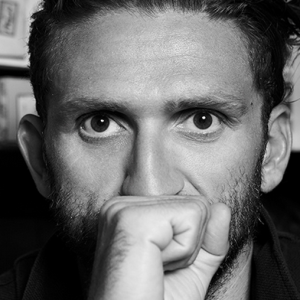Want to know what books David Coogan recommends on their reading list? We've researched interviews, social media posts, podcasts, and articles to build a comprehensive list of David Coogan's favorite book recommendations of all time.
1

Malcolm X, M. S. Handler, Ossie Davis, Attallah Shabazz, Alex Haley | 4.56
With its first great victory in the landmark Supreme Court decision Brown v. Board of Education in 1954, the civil rights movement gained the powerful momentum it needed to sweep forward into its crucial decade, the 1960s. As voices of protest and change rose above the din of history and false promises, one voice sounded more urgently, more passionately, than the rest. Malcolm X—once called the most dangerous man in America—challenged the world to listen and learn the truth as he experienced it. And his enduring message is as relevant today as when he first delivered it.
In the... more With its first great victory in the landmark Supreme Court decision Brown v. Board of Education in 1954, the civil rights movement gained the powerful momentum it needed to sweep forward into its crucial decade, the 1960s. As voices of protest and change rose above the din of history and false promises, one voice sounded more urgently, more passionately, than the rest. Malcolm X—once called the most dangerous man in America—challenged the world to listen and learn the truth as he experienced it. And his enduring message is as relevant today as when he first delivered it.
In the searing pages of this classic autobiography, originally published in 1964, Malcolm X, the Muslim leader, firebrand, and anti-integrationist, tells the extraordinary story of his life and the growth of the Black Muslim movement to veteran writer and journalist Alex Haley . In a unique collaboration, Haley worked with Malcolm X for nearly two years, interviewing, listening to, and understanding the most controversial leader of his time.
Raised in Lansing, Michigan, Malcolm Little journeyed on a road to fame as astonishing as it was unpredictable. Drifting from childhood poverty to petty crime, Malcolm found himself in jail. It was there that he came into contact with the teachings of a little-known Black Muslim leader renamed Elijah Muhammad. The newly renamed Malcolm X devoted himself body and soul to the teachings of Elijah Muhammad and the world of Islam, becoming the Nation’s foremost spokesman. When his conscience forced him to break with Elijah Muhammad, Malcolm founded the Organization of Afro-American Unity to reach African Americans across the country with an inspiring message of pride, power, and self-determination. less 
Casey NeistatAside from The Autobiography of Malcolm X, Casey's favorite book is The Second World War by John Keegan. (Source)

Ryan HolidayI forget who said it but I heard someone say that Catcher in the Rye was to young white boys what the Autobiography of Malcolm X was to young black boys. Personally, I prefer that latter over the former. I would much rather read about and emulate a man who is born into adversity and pain, struggles with criminality, does prison time, teaches himself to read through the dictionary, finds religion... (Source)

Keith EllisonMalcolm X is somebody that everybody in America’s prisons today could look at and say, ‘You know what, I can emerge, I can evolve' (Source)
2
Jimmy Santiago Baca | 4.38
A vivid portrait of life inside a maximum-security prison and an affirmation of one man's spirit in overcoming the most brutal adversity, this award-winning memoir "stands as proof there is always hope in even the most desperate lives" ("Fort Worth Morning Star-Telegram"). more A vivid portrait of life inside a maximum-security prison and an affirmation of one man's spirit in overcoming the most brutal adversity, this award-winning memoir "stands as proof there is always hope in even the most desperate lives" ("Fort Worth Morning Star-Telegram"). less 
David CooganJimmy Santiago Baca, in his memoir, writes about how, when he was 20 or 21, he realized he was an illiterate Chicano in this very violent, maximum security prison. He knew he wanted to get out and lead a better life. (Source)
3

New York Times "Bestseller In 1991, Shaka Senghor was sent to prison for second-degree murder. Today, he is a lecturer at universities, a leading voice on criminal justice reform, andaninspiration to thousands.
In life, it's not how you start that matters. It's how you finish.
Shaka Senghor was raised in a middle class neighborhood on Detroit s east side during the height of the 1980s crack epidemic. An honor roll student and a natural leader, he dreamed of becoming a doctor but at age 11, his parents' marriage began to unravel, and the beatings from his mother worsened, sending... more New York Times "Bestseller In 1991, Shaka Senghor was sent to prison for second-degree murder. Today, he is a lecturer at universities, a leading voice on criminal justice reform, andaninspiration to thousands.
In life, it's not how you start that matters. It's how you finish.
Shaka Senghor was raised in a middle class neighborhood on Detroit s east side during the height of the 1980s crack epidemic. An honor roll student and a natural leader, he dreamed of becoming a doctor but at age 11, his parents' marriage began to unravel, and the beatings from his mother worsened, sending him on a downward spiral that saw him run away from home, turn to drug dealing to survive, and end up in prison for murder at the age of 19, fuming with anger and despair.
"Writing My Wrongs" is the story of what came next. During his nineteen-year incarceration, seven of which were spent in solitary confinement, Senghor discovered literature, meditation, self-examination, and the kindness of others tools he used to confront the demons of his past, forgive the people who hurt him, and begin atoning for the wrongs he had committed. Upon his release at age thirty-eight, Senghor became an activist and mentor to young men and women facing circumstances like his. His work in the community and the courage to share his story led him to fellowships at the MIT Media Lab and the Kellogg Foundation and invitations to speak at events like TED and the Aspen Ideas Festival.
In equal turns, "Writing My Wrongs" is a page-turning portrait of life in the shadow of poverty, violence, and fear; an unforgettable story of redemption, reminding us that our worst deeds don t define us; and a compelling witness to our country s need for rethinking its approach to crime, prison, and the men and women sent there.
"From the Hardcover edition." less 
Ben HorowitzThe memoir of a man who went to prison for 19 years, then became an author and MIT fellow. (Source)

David CooganShaka Senghor grew up in the 80s and 90s. He was a young man when the crack epidemic took the country by storm. He grew up in Detroit and became a dealer pretty young. He was shot at and he shot at people and eventually killed somebody. (Source)
4

What I hope is that people reading this book will bear in mind that we are human beings first, inmates second.
--Bonnie Foreshaw
In a stunning new work of insight and hope, New York Times bestselling author Wally Lamb once again reveals his unmatched talent for finding the humanity in the lost and lonely and celebrates the transforming power of the written word.
For the past several years, Lamb has taught writing to a group of women prisoners at York Correctional Institution. At first mistrustful of Lamb, one another, and the writing process,... moreWhat I hope is that people reading this book will bear in mind that we are human beings first, inmates second.
--Bonnie Foreshaw
In a stunning new work of insight and hope, New York Times bestselling author Wally Lamb once again reveals his unmatched talent for finding the humanity in the lost and lonely and celebrates the transforming power of the written word.
For the past several years, Lamb has taught writing to a group of women prisoners at York Correctional Institution. At first mistrustful of Lamb, one another, and the writing process, over time these students let down their guard, picked up their pens, and discovered their voices. In this unforgettable collection, the women of York describe in their own words how they were imprisoned by abuse, rejection, and their own self-destructive impulses long before they entered the criminal justice system. Yet these are stories of hope, humor, and triumph in the face of despair. Having used writing as a tool to unlock their creativity and begin the process of healing, these amazing writers have left victimhood behind.
In his powerful introduction, Lamb describes the incredible journey of expression and self-awareness the women took through their writings and shares how they challenged him as a teacher and as a fellow author. In "Hair Chronicles," Tabatha Rowley tells her life history through her past hairstyles -- outer signals to the world each time she reinvented herself and eventually came to prize her own self-worth. Brenda Medina admits in "Hell, and How I got Here" that she continued to rebel in prison until her parents' abiding love made her realize that her misbehavior was hurting them and herself deeply. In "Faith, Power, and Pants," Bonnie Foreshaw describes how faith has carried her through trials in life and in prison and has allowed her to understand her past actions, to look toward the future, and to believe that she will once again taste home cooking. Couldn't Keep It to Myself is a true testament to the process of finding oneself and working toward a better day. less
David CooganWally Lamb’s book is one of several that raises up the voices of women prisoners who have suffered through unspeakable traumas before they committed their crimes. (Source)
5

In 1997 Mark Salzman, bestselling author Iron and Silk and Lying Awake, paid a reluctant visit to a writing class at L.A.’s Central Juvenile Hall, a lockup for violent teenage offenders, many of them charged with murder. What he found so moved and astonished him that he began to teach there regularly. In voices of indelible emotional presence, the boys write about what led them to crime and about the lives that stretch ahead of them behind bars. We see them coming to terms with their crime-ridden pasts and searching for a reason to believe in their future selves. Insightful,... more In 1997 Mark Salzman, bestselling author Iron and Silk and Lying Awake, paid a reluctant visit to a writing class at L.A.’s Central Juvenile Hall, a lockup for violent teenage offenders, many of them charged with murder. What he found so moved and astonished him that he began to teach there regularly. In voices of indelible emotional presence, the boys write about what led them to crime and about the lives that stretch ahead of them behind bars. We see them coming to terms with their crime-ridden pasts and searching for a reason to believe in their future selves. Insightful, comic, honest and tragic, True Notebooks is an object lesson in the redemptive power of writing. less 
David CooganMark Salzman is also a novelist. He stumbles into offering a writing workshop at a juvenile detention center in California for kids who were in gangs, many of them with very serious charges. He comes in in much the same way Wally Lamb does. Wally Lamb was not looking to do a writing workshop. Ge was invited to come in and he reluctantly said, ‘Ok, I’ll do it this one time’ and then he kind of... (Source)
Don't have time to read David Coogan's favorite books? Read Shortform summaries.
Shortform summaries help you learn 10x faster by:
- Being comprehensive: you learn the most important points in the book
- Cutting out the fluff: you focus your time on what's important to know
- Interactive exercises: apply the book's ideas to your own life with our educators' guidance.




